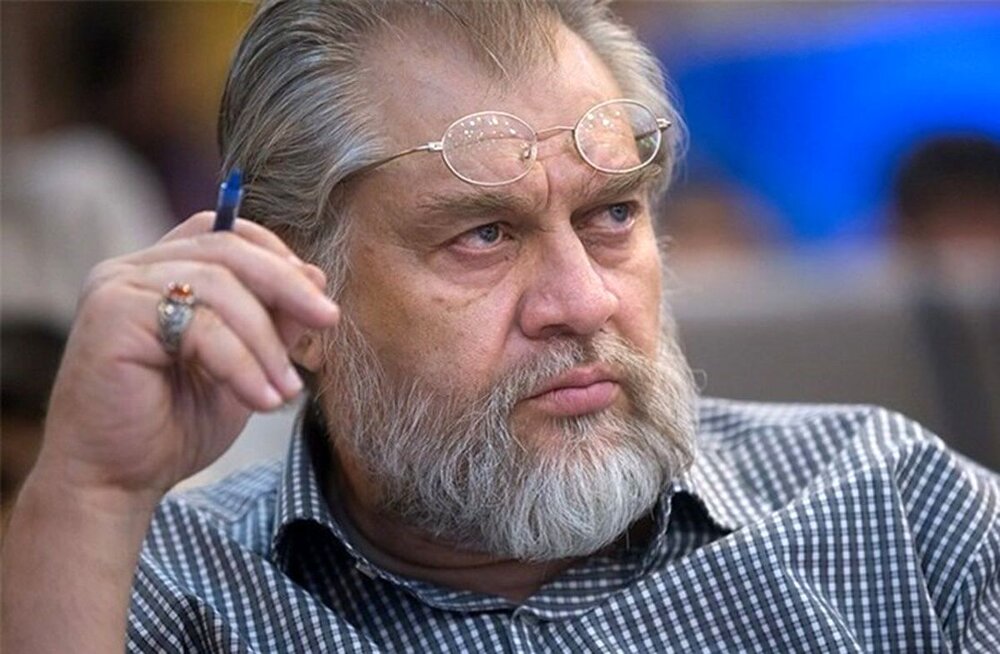Nader Talebzadeh, filmmaker and TV producer of revolutionary programs, dies at 69

TEHRAN – Nader Talebzadeh, a renowned filmmaker and TV producer who became famous as a symbol of revolutionary programs and events over the past two decades, passed away on Friday at the age of 69.
He was admitted to a Tehran hospital last week on account of chronic heart disease, and ultimately died Friday evening, Persian news agencies announced.
Talebzadeh was the president of the Ammar Popular Film Festival, which he co-founded along with several Iranian revolutionary figures.
He also was a co-founder of Ofoq, IRIB’s channel for documentary cinema, and worked as a host and TV producer presenting programs on political issues, media and films.
He was born into a military family whose father was a high-ranking officer during the reign of Mohammad Reza Shah, the last monarch of Iran.
After finishing his high school education he left Iran to study English literature in the United States of America. He received a degree in filmmaking at Columbia University in New York City.
After the victory of the Islamic Revolution in 1979, he returned to Iran and started his film career with the Islamic Republic of Iran Broadcasting (IRIB).
In the early days of the 1980-1988 Iran-Iraq war, he joined the Iranian troops on the frontlines to make documentaries for IRIB.
He also worked with Morteza Avini, a top filmmaker who was famous for his documentaries on the war. He made “Fajr and Poppy” and “25 Hour” for Avini’s popular documentary series “The Narration of Triumph” (“Revayate Fat’h”).
As a documentarian, he also went to the 1990s Balkan Wars, and his films are preserved in IRIB’s archives.
In 2007, he made his debut feature film “The Messiah”, which portrays the story of Jesus Christ as told from an Islamic perspective. The movie was changed into a TV series that aired on IRIB in 2010.
Afterwards, he focused on making TV programs, including “Asr” and “Raaz”, for which he was bestowed with such titles as “chief of the cultural front of the revolution”, “standard-bearer of the cultural front of the revolution” and “exemplar of a revolutionary artist” by his sympathetic friends and Iranian officials.
He also launched the New Horizon Conference, inviting figures from across the world who stand in opposition to U.S. policies.
Speaking on a TV program, Talebzadeh once said that he had survived a “biological terrorism” attempt during the Arbaeen gathering in 2016. He said that his suitcase was confiscated by some armed men in Najaf. The suitcase was sent back to him in Karbala a few days later, but after handling it, he began to suffer from asthma and continued to suffer from insomnia.
Talebzadeh’s death came as a shock, triggering a flood of messages of condolences from his friends and officials, including filmmaker Ebrahim Hatamikia and President Ebrahim Raisi.
Hatamikia, the director of “Damascus Time”, called Talebzadeh, “the most exceptional person” he knew in cinema, and added, “It’s unlikely that someone can fill his place in cinema.”
In his message of condolences, Raisi said, “The death of the revolutionary artist and influential figure on the cultural front of the Islamic Revolution, the late Nader Talebzadeh, caused much grief for artists and cultural figures.”
“This jihadist on the frontlines of soft warfare made numerous brilliant documentary films and TV programs, and as a media activist, cultural manager and expert on international issues opened up new horizons for awakening and struggle against cultural invasion,” he added.
Talebzadeh’s funeral procession will begin from IRIB’s Bilal Mosque on Sunday, and he will be buried in Tehran’s Behesht Zahra Cemetery.
Photo: Filmmaker and TV producer Nader Talebzadeh in an undated photo.
MMS/YAW
Leave a Comment